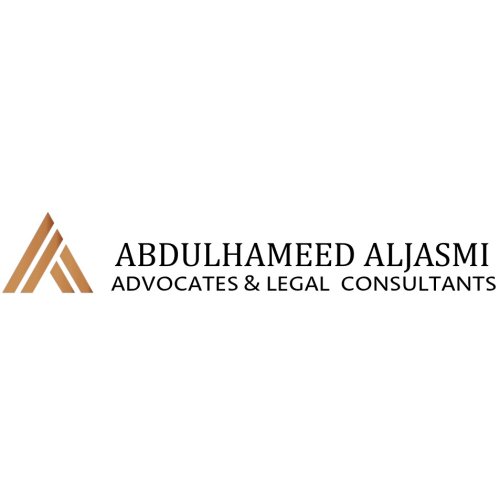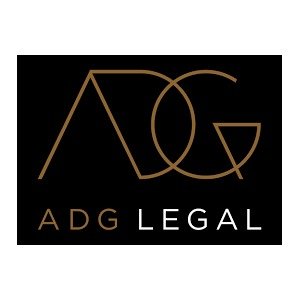Best Public-Private Partnerships (PPP) Lawyers in United Arab Emirates
Share your needs with us, get contacted by law firms.
Free. Takes 2 min.
Or refine your search by selecting a city:
List of the best lawyers in United Arab Emirates
About Public-Private Partnerships (PPP) Law in United Arab Emirates
Public-Private Partnerships, commonly known as PPPs, refer to collaborative agreements between governmental bodies and private sector entities to develop, finance, operate, or maintain public infrastructure and services. In the United Arab Emirates, PPPs have become a vital strategy for advancing national development, improving public service quality, and attracting private investments into various sectors, including transportation, utilities, education, and healthcare. The UAE has established specific legal frameworks and processes to govern these partnerships, ensuring accountability and transparency while allocating risks and responsibilities between the public and private partners.
Why You May Need a Lawyer
Engaging in a Public-Private Partnership in the UAE involves complex legal, financial, and operational considerations. You may need a lawyer in situations such as:
- Reviewing and negotiating PPP contracts to protect your interests.
- Navigating regulatory requirements and obtaining necessary approvals from local authorities.
- Managing consortium agreements or joint venture arrangements with other private entities.
- Understanding risk allocation, penalty clauses, and performance guarantees.
- Resolving disputes that may arise between partners or with government agencies.
- Conducting due diligence on PPP projects or opportunities.
- Ensuring compliance with evolving PPP legislation and regulatory standards.
- Advising on land, intellectual property rights, and licensing requirements relevant to a PPP undertaking.
Legal guidance is essential to minimize risks and secure successful, efficient participation in PPP projects.
Local Laws Overview
The UAE has specific laws and regulations pertaining to Public-Private Partnerships. Some of the most relevant aspects include:
- Federal PPP Law: Federal Law No. 12 of 2023 on Public-Private Partnerships establishes the main legal framework for PPPs at the federal level, setting out key principles, procedures, and standards.
- Emirate-Specific Legislation: Several Emirates, such as Dubai and Abu Dhabi, have their own PPP laws and directives. For example, Dubai Law No. 22 of 2015 specifically governs PPPs in the Emirate of Dubai.
- Project Selection and Approval: PPP projects generally require approval from relevant government authorities. There are set criteria for what types of projects qualify as PPPs and the procedures for initiating these partnerships.
- Procurement Processes: PPP laws emphasize fair and transparent tender processes, including pre-qualification, competitive bidding, and evaluation of proposals.
- Contractual Structure: Core elements such as duration, risk sharing, financial arrangements, dispute resolution mechanisms, and performance standards must all be clearly defined in a PPP contract.
- Investment and Ownership Rights: The law outlines rights regarding transfer of ownership, termination, and asset reversion at the end of the contract term.
- Dispute Resolution: The framework provides for arbitration and other methods to resolve conflicts between parties efficiently.
Understanding these legal dimensions is crucial for anyone considering participation in a PPP in the UAE.
Frequently Asked Questions
What exactly is a PPP in the UAE context?
A PPP in the UAE is a partnership between a public sector entity and a private company aimed at delivering a public project or service, where both share in the risks and rewards.
Who can participate in a PPP?
Both local and international private sector entities, including joint ventures and consortia, can participate in PPPs, though eligibility may vary by project and Emirate.
What sectors are open to PPP projects in the UAE?
Common sectors include infrastructure, transportation, power and water, health services, education, waste management, and more, depending on local government priorities.
How are PPP projects awarded?
Most PPP projects are awarded through transparent and competitive procurement processes, such as tenders or requests for proposals, following clear evaluation criteria.
Are foreign companies allowed to enter PPPs?
Yes, in most cases foreign companies are permitted to partner with UAE public authorities in PPP projects, though there may be local participation or licensing requirements.
What are the typical risks allocated in a PPP contract?
Risks commonly allocated include construction risk, operational risk, financial risk, force majeure events, and regulatory or political risks, with allocation agreed contractually.
How are disputes resolved in UAE PPP contracts?
PPP contracts usually provide for arbitration, often seated in the UAE or a mutually agreed jurisdiction, alongside other forms of dispute resolution like mediation.
What is the typical duration of a PPP contract?
PPP contracts typically range from 10 to 35 years, depending on the project type, lifecycle, and financial arrangements.
Do PPP laws differ between Emirates in the UAE?
Yes, there are differences, as some Emirates have their own PPP laws and procedures. For example, Dubai and Abu Dhabi have specific PPP regimes in place.
What happens when a PPP contract ends?
On expiry or early termination of a PPP contract, project assets usually revert to the public sector according to the terms set out in the agreement.
Additional Resources
If you are seeking further information or official guidance on PPPs in the UAE, consider the following resources:
- Ministry of Finance - oversees federal PPP policy, guidelines, and project approvals.
- Department of Finance of relevant Emirates - for Emirate-level PPP projects (such as Dubai Department of Finance).
- PPP units within sector-specific authorities - such as transport, energy, or healthcare regulators.
- International organizations and chambers of commerce - such as the UAE Chambers of Commerce or international PPP advisory bodies for best practices and networking.
- Professional legal associations and reputable law firms specialized in PPP advisory in the region.
Next Steps
If you are considering participation in a PPP project in the United Arab Emirates, it is advisable to seek legal advice early in the process. Here are some recommended steps:
- Identify the relevant laws, regulations, and authorities governing PPPs specific to your target Emirate and sector.
- Consult with a lawyer who has experience with PPP structures, local laws, and cross-border investments.
- Prepare documentation related to your business qualifications, past project experience, and financial capability.
- Engage in discussions with potential public sector partners to understand project requirements and expectations.
- Review all terms and conditions thoroughly, including risk allocation, duration, termination, and dispute resolution mechanisms.
- If needed, participate in pre-bid meetings or request clarifications from the issuing authority.
Effective legal support will help you navigate the complexities of PPPs in the UAE, protect your interests, and increase your prospects for a successful partnership.
Lawzana helps you find the best lawyers and law firms in United Arab Emirates through a curated and pre-screened list of qualified legal professionals. Our platform offers rankings and detailed profiles of attorneys and law firms, allowing you to compare based on practice areas, including Public-Private Partnerships (PPP), experience, and client feedback.
Each profile includes a description of the firm's areas of practice, client reviews, team members and partners, year of establishment, spoken languages, office locations, contact information, social media presence, and any published articles or resources. Most firms on our platform speak English and are experienced in both local and international legal matters.
Get a quote from top-rated law firms in United Arab Emirates — quickly, securely, and without unnecessary hassle.
Disclaimer:
The information provided on this page is for general informational purposes only and does not constitute legal advice. While we strive to ensure the accuracy and relevance of the content, legal information may change over time, and interpretations of the law can vary. You should always consult with a qualified legal professional for advice specific to your situation.
We disclaim all liability for actions taken or not taken based on the content of this page. If you believe any information is incorrect or outdated, please contact us, and we will review and update it where appropriate.
Browse public-private partnerships (ppp) law firms by city in United Arab Emirates
Refine your search by selecting a city.

















